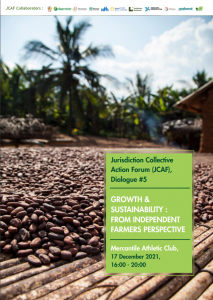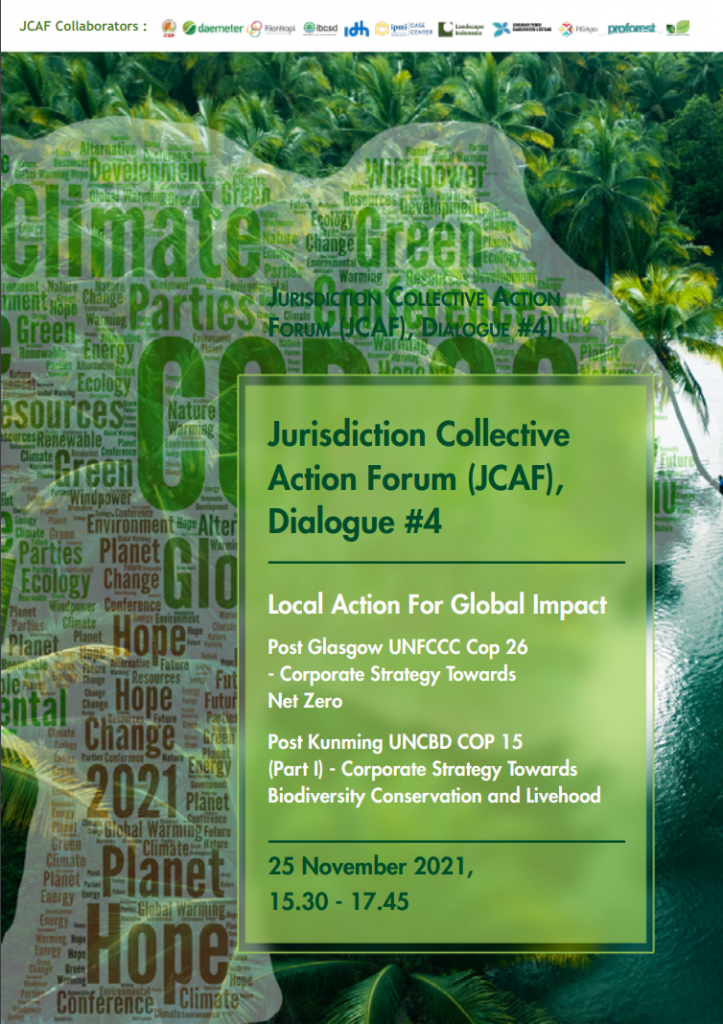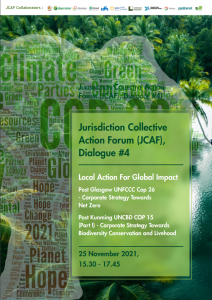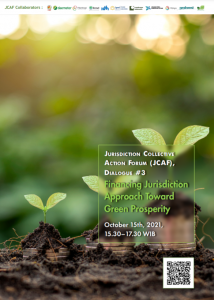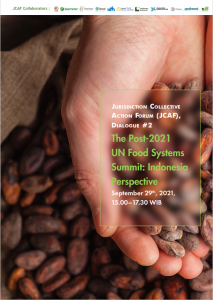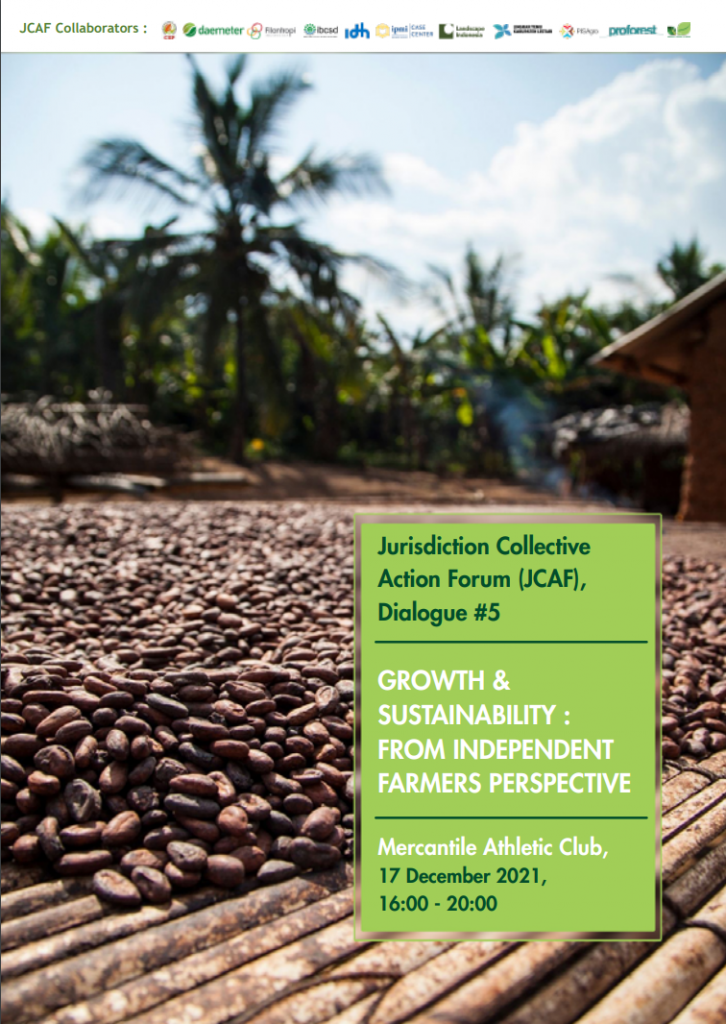
JCAF Dialogue#5: Growth & Sustainability: Cocoa’s Smallholder Perspective
EXECUTIVE SUMMARY
Sustainable agricultural commodities refer to the principles and criteria of sustainability at the jurisdictional level. Smallholders and Independent Smallholder farmers are among many key actors in the supply chain of agricultural commodities, particularly cocoa sectors, taking up the most extensive coverage. Indonesian smallholders owned 90 % of cocoa plantations, although their total national output contributed to 65% of overall national cocoa production. Consequently, international and regional markets view farmers’ roles are critical to fulfilling sustainable supply chain production.
In his remarks during the sixth of Jurisdictional Collective Action Forum (JCAF), the Ministry of Small and Medium Enterprises (SMEs) and the Ministry of Trade indicate that SMEs account for an overwhelming majority of economic generation and play a significant role in the contribution to Indonesia’s commitment to achieving the SDGs. The establishment of the training centre and provision of technical assistance to support local farmers’ compliance to sustainable market principles are among many efforts the Government has facilitated to strengthen the SMEs. Undergoing collaboration program between the Government with local partners are Patchouli partnership in Aceh, biopharmaceutical products development in East Kalimantan, Cocoa Products and Beef processing in NTT, and rattan production in Central Java. In some districts, cooperatives facilitate access for smallholder farmers gaining technical expertise for Good Agricultural practices and access to global market.
An academic institution such as IPB provides research knowledge and practical approaches through the Agroforestry system to respond to the increasing global demand of cocoa production against this challenging backdrop of climate and productivities. Some successful models are piloted across farmer groups in Sumatra and Sulawesi to anticipate possible encroachment yet promote higher income through crops diversification and other potential economic incentives.
At the heart of the effort, what has been pursued by two cocoa cooperatives in Jembrana and North Luwuk Regencies are producing sufficient quality yields at competitive prices to curtail challenges for palm-oil conversion due to incentivized price other crops have offered. At the jurisdictional level, a more holistic and integrated approach to aligning regional sustainability goals and agricultural supply chain incentives are critical to motivating stakeholder participation to support increasing production sources, especially for cocoa smallholder farmers.
The dialogue sums up the need to strengthen the role of smallholder farmers through cooperatives. Active involvement across supply chain actors, provision of expert assistance, diversifying crops for income generation, and regulatory framework are identified as necessary steps and takeaway message to promote sustainable cocoa production. Therefore to advance collective vision to achieve sustainable development goals, it is essential to develop the business case for the cooperatives both in Jembrana and Masagena to further identify lessons learned, challenges, and opportunities to leverage and catalyse more stakeholder engagement and investment at the Jurisdiction.
